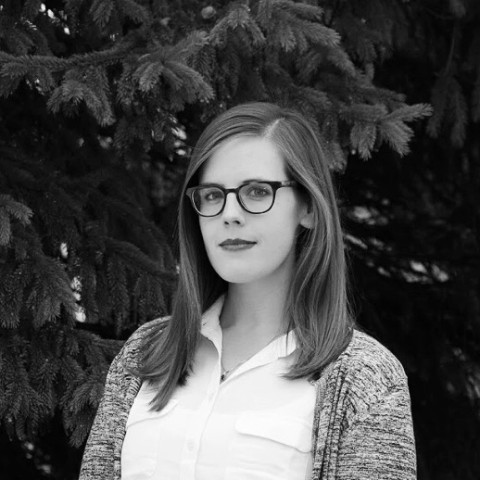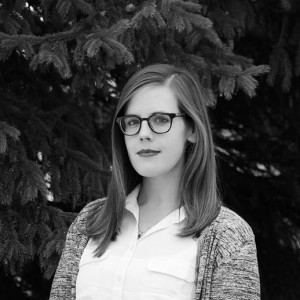
In SmokeLong‘s “Why Flash Fiction?” series, writers and editors explore what draws them to the form. In this column, Dot Dannenberg discusses her transition from poetry to flash. Submit your own “Why Flash Fiction?” article or other flash-related essays on our Submittable page!
By Dot Dannenberg
Poetry vs. Fiction. In grad school, the divide between the genres sometime felt like the Sharks and the Jets. We poets were flighty. We got hung up on word association and the names of plants. Why were we there, the fiction students wondered? There were no book deals for us. But I could never live in the fog that seemed to be required to write fiction. My fiction-writing friends confessed that they thought about their characters all the time—even dreamed about them. I wanted to be grounded in the here and now. I knew what a good last line for a poem sounded like, and I was going to set up everything else accordingly.
Of course, this is why they shouldn’t let twenty-two year olds into MFA programs. Because we know nothing, Jon Snow.
Though I was trailing down the academic path of becoming a poet, the truth was, all I ever read was fiction. I was the kid who broke bedtime rules with a novel and a flashlight under the covers. I have novels I re-read every year, those old friends who keep revealing new truths as I age. Even in grad school, I convinced my advisors to let me add fiction to my reading list. “It’ll, uh, help my narrative poems,” I said.
So maybe, for me, leaving poetry for flash was inevitable.
I came to flash fiction because I am greedy. Maybe it’s because I’m a millennial woman and I want to Have It All. I want the job and the babies. I want the wordplay and the narrative. Flash fiction, to me, combines all of the best elements of poetry with those of my true love, fiction. In flash, imagery and characterization are equally important. Space is at a premium, but you may still need a plot. Flash fiction seems easy, but can be incredibly technical. W.B. Yeats said a poem should “click shut” like a box at the ending–the best flash also has this quality.
Flash fiction showed me that through using poetry, I could dip a toe into the immersive fog of fiction writing. I could make the fog work for me.
Writer Pam Houston once said that the brain has two halves to it: the Creative Unconscious and the Analytical Bitch. The Creative Unconscious is where all the best stuff comes from. The brilliant ideas. The dialogue that writes itself. The Analytical Bitch? She tells you that you suck, you don’t know how to spell, your vulnerability is embarrassing, and you will never get published. Writers need all the help they can get to turn off the voice of the Analytical Bitch and let the Creative Unconscious do its work.
The poets figured this out first. If you’ve ever tried to write formal verse, you may have found that you focus so hard on the rules that your sonnet about your boyfriend turns out to be a sonnet about soccer. A better sonnet about soccer than any love poem you could ever write. Following the rules gives the Analytical Bitch something to do, so the Creative Unconscious fills in the content and delivers the poetry magic.
While novel writing still feels unwieldy and intimidating to me, flash fiction, even without a prompt, is built on something my control-freak self loves: constraints. The internet is teeming with requirements for flash. Exactly 250 words. No more than 500. I’m an editor at 1:1000, where, after the old adage “a picture’s worth a thousand words,” we ask writers to craft a 1,000-word story inspired by a photograph.
I like that Flaubert quote–“Be regular and orderly in your life…so that you may be violent and original in your work.” The constraints of flash make me feel safe and orderly while I jump in over my head. The human brain is a wild tumbleweed. Tell me to write whatever I want, and I will stare at my notebook for fifteen minutes and then start scrolling through Instagram. Give me a photograph and a word limit, and suddenly the winds of distraction stop blowing. The mind stops wandering. The flow state fog sets in. The pen scratches. Magic.
 Dot Dannenberg is a contributing editor at 1:1000. She lives in Riyadh, Saudi Arabia, and writes about life and culture shock in her newsletter See & Say. She holds an MFA in poetry from Pacific University.
Dot Dannenberg is a contributing editor at 1:1000. She lives in Riyadh, Saudi Arabia, and writes about life and culture shock in her newsletter See & Say. She holds an MFA in poetry from Pacific University.

 The SmokeLong Grand Micro Contest (The Mikey) is now an annual competition celebrating and compensating the best micro fiction and nonfiction online.
The SmokeLong Grand Micro Contest (The Mikey) is now an annual competition celebrating and compensating the best micro fiction and nonfiction online.